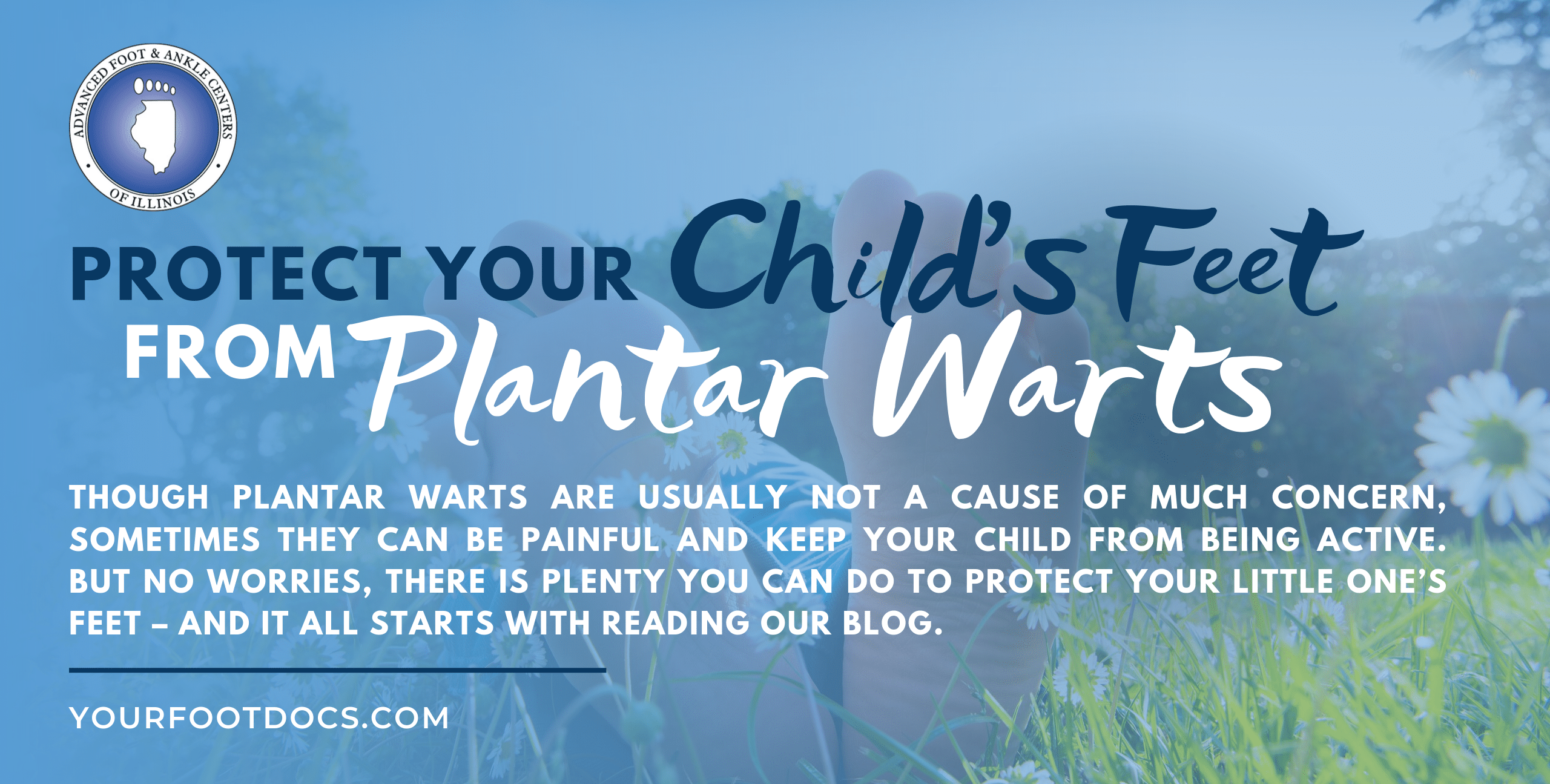Protect Your Child’s Feet from Plantar Warts
They say “sharing is caring,” and though that may be true for many things, when it comes to sharing nasty viral infections like plantar warts, this frame of mind certainly doesn’t apply.
In fact, the mere thought of having a wart can be enough to make some peoples’ skin crawl. And if you are a parent, then you naturally want to prevent this unwelcoming problem from developing in your child’s feet – we get it!
So we would like to start off by assuring you that plantar warts are rather common and often harmless, and learning more about this condition will help you understand where they come from and what you can do to protect your child’s feet.
Getting to Know Plantar Warts
Plantar warts are caused by the human papillomavirus (HPV), which has over 100 different strains.
Now, the way HPV affects individuals can greatly differ – even when the outer layer of the skin is infected by this virus, it doesn’t necessarily mean this person will develop warts. Everyone’s immune system responds differently to HPV, and while one person may develop plantar warts, others may not.
Still, it’s important to protect your child’s feet against this viral infection, especially because exposure to it can happen more often than you might expect. Your child does not have to be in direct contact with another person who is infected in order to catch this problem. All it takes is for your little one to walk barefoot in an environment where HPV thrives – this includes pool decks, public showers, and other public areas that are usually damp and see a lot of foot traffic.
That said, coming into direct contact with a wart can certainly transmit this infection, too. That’s why we recommend you and your child never touch or pick at an existing wart as the infection can easily spread to other parts of the body and from person to person.
But what should you do if your child has developed plantar warts?
Treating Plantar Warts in Children
In most cases, plantar warts are benign (harmless) and shouldn’t be a cause of much concern, but sometimes this condition can lead to pain when walking or standing. If this is the case for your child then he or she may begin to alter the way they walk in order to alleviate pressure on the affected area, and this alteration can lead to potential joint and muscle issues.
Of course, children won’t always tell parents when they are experiencing pain. So it’s important to pay close attention to any irregularities in your child’s walking gait, or if they show signs that something may be wrong with their feet. If your little one:
- No longer wants to participate in activities they usually enjoy
- Cannot keep up with peers, particularly when running
- Avoids showing you their feet
… then there’s a chance that something isn’t quite right, and you should check their feet for any signs of plantar warts – or other foot and ankle problems.
If you determine your child has developed plantar warts and you want to “wait out,” you can certainly do so. These growths actually go away on their own, without any treatment. Here’s the catch, though: It can take up to a couple of years. Most people don’t want to wait this long, especially considering the condition can easily spread.
On the other hand, you may feel tempted to take matter into your own hands and use some at-home remedies, like over-the-counter wart removal kits. But the thing is, these only work about half of the time and often come with the risk of damaging healthy skin around the wart.
So instead of running the risk of causing even more harm to your child’s feet, let the experts at our Advanced Foot & Ankle Centers of Illinois provide the gentle and effective treatment your child deserves.
Medical treatment for plantar warts are safe and effective. These efforts may include prescription-strength medications and ointments, as well as laser cautery for severe cases.
Preventing Plantar Warts in Children
Even better than providing the relief your child needs is preventing this nasty problem from getting a hold of their feet in the first place. And the good news is there are plenty of steps you can take to protect your little one’s feet from plantar warts. These include:
- Educating your child about proper foot hygiene. Make sure they know how to properly wash and dry their feet, paying special attention to those areas between the toes.
- Not letting your child walk barefoot in wet public areas. Make sure they wear sandals or shower shoes when walking in warm, damn environments like pool decks and gym locker rooms.
- Making sure your child avoids coming into contact with existing warts. Tell him or her to not pick at an existing wart, as this may spread the virus. Also, make sure they carefully and thoroughly wash their hands after coming into contact with a wart.
- Keeping your child’s feet moisture-free. Make sure your child changes socks and shoes daily.
- Never let your child use hand-me-down shoes. Not only can this cause biomechanical problems in their feet, but used footwear can also harbor nasty bacteria and viruses.
Finding the Best Foot Care for Your Child
We certainly hope you are able to keep your child’s feet free of plantar warts – and any other foot or ankle problem for that matter – but we also know that sometimes things happen. And with all the adventures that await your little one, not everything can be prevented.
When that is the case, give our office a call to make an appointment today. We have seven convenient locations ready to deliver the gentle and compassionate care your child needs to stay active – without foot problems.

